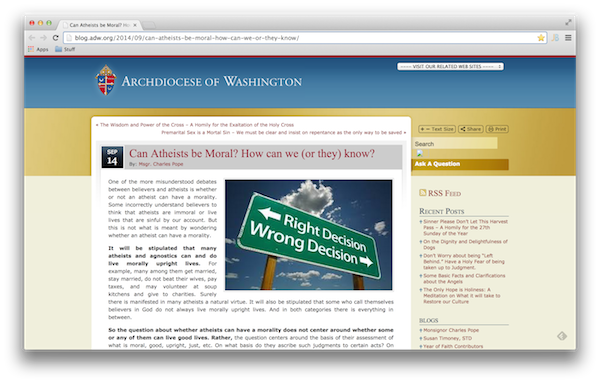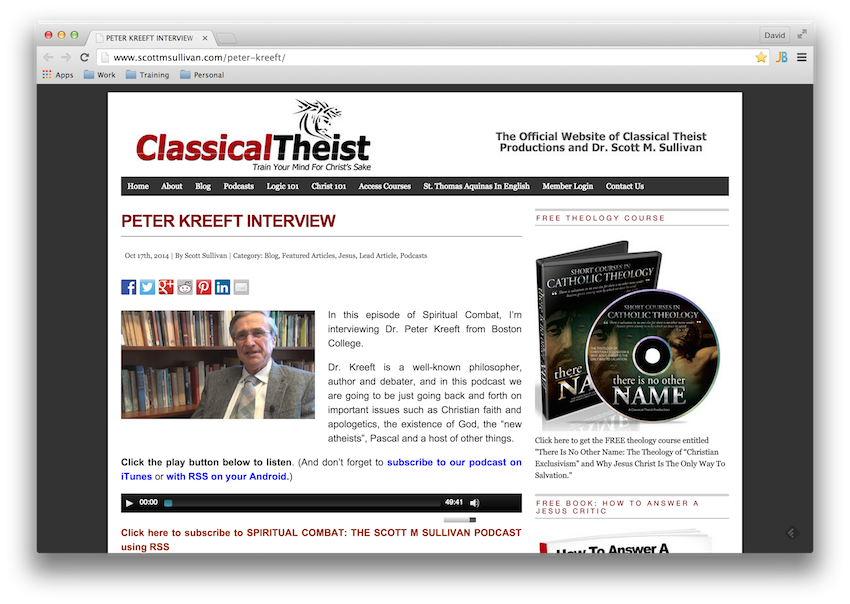One of the books I read on my sabbatical was Jesus Among Other gods by Ravi Zacharias. The part of the book which I found most engaging was the chapter in which he addresses the problem of evil and suffering. Over the next week or so, I’ll be posting a few short extracts from the book from this section, together with a comment or two.

The “Problem of pain” is an understandably common reason given by Agnostics and Atheists for doubting or even denying the existence of God. However, as Zacharias points out, one can only really talk about the problem of pain if there is a moral law:
…[some] protest that God cannot exist because there is too much evil evident in life… [The Atheist says that] evil exists; therefore the Creator does not…
But here, Christianity provides a counterchallenge… If evil exists, then one must assume that good exists in order to know the difference. If good exists, one must assume that a moral law exists by which to measure good and evil.
– Ravi Zacharias, Jesus Among Other gods
Okay, so to talk about “good” and “evil”, a moral law must exist. So what? How does that point to theism?
But if a moral law exists, must not one posit an ultimate source of moral law, or at least an objective basis for a moral law? By an objective basis, I mean something that is transcendently true at all times, regardless of whether I believe it or not.
– Ravi Zacharias, Jesus Among Other gods
What could possibly be the objective basis of this law? The Theist answers “God”.
 Quite some time ago, a NY Times columnist, Ross Douthat wrote a book called “Bad Religion”. He went on the show of militant atheist Bill Maher and I found their conversation really enlightening.
Quite some time ago, a NY Times columnist, Ross Douthat wrote a book called “Bad Religion”. He went on the show of militant atheist Bill Maher and I found their conversation really enlightening. Before I took a break for Advent I
Before I took a break for Advent I 


